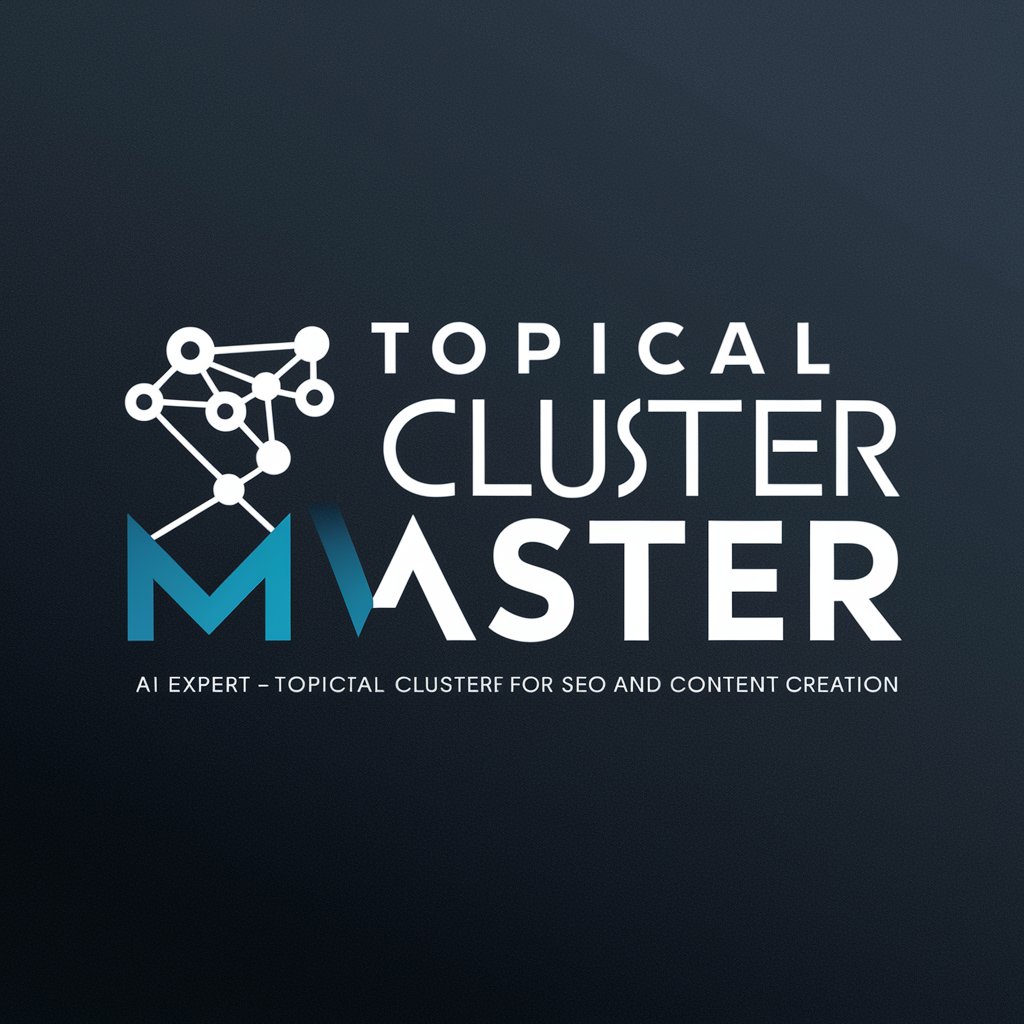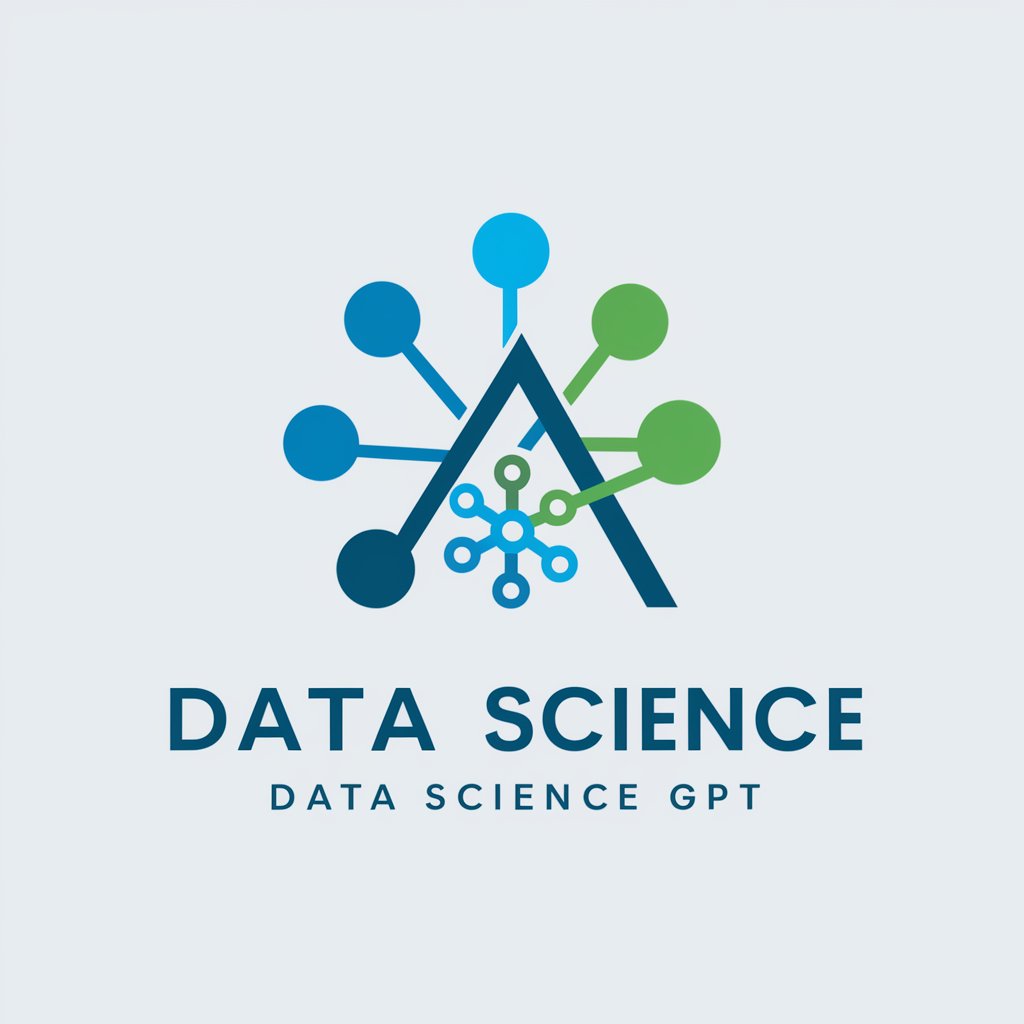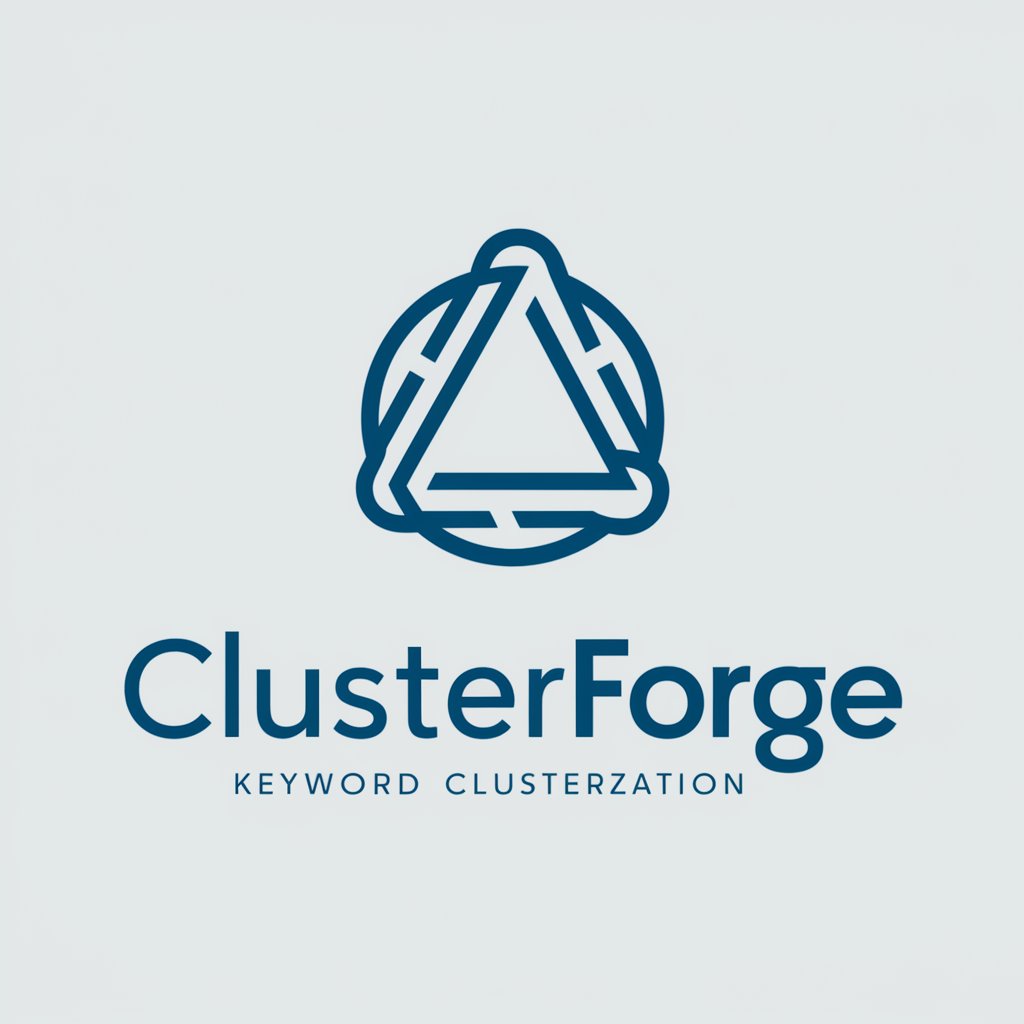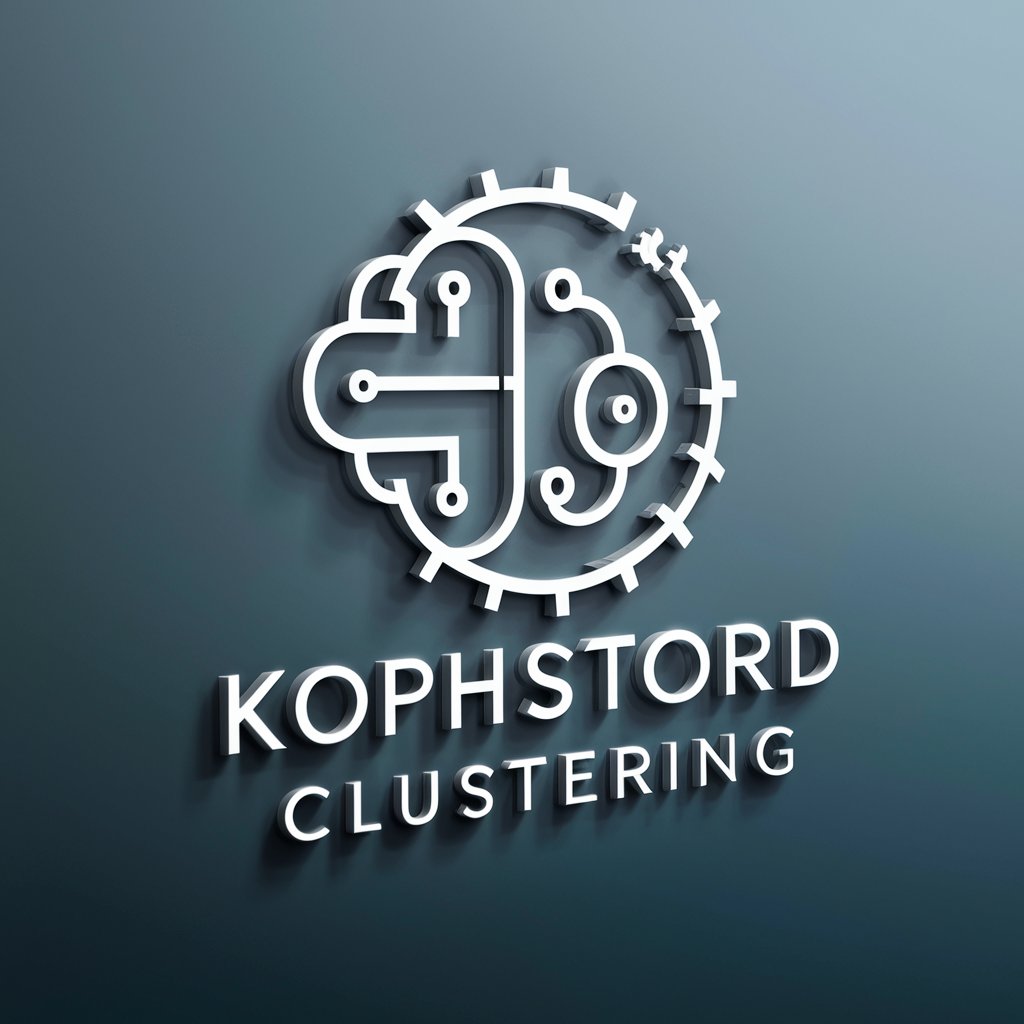
Cluster Tool - AI-Powered Clustering
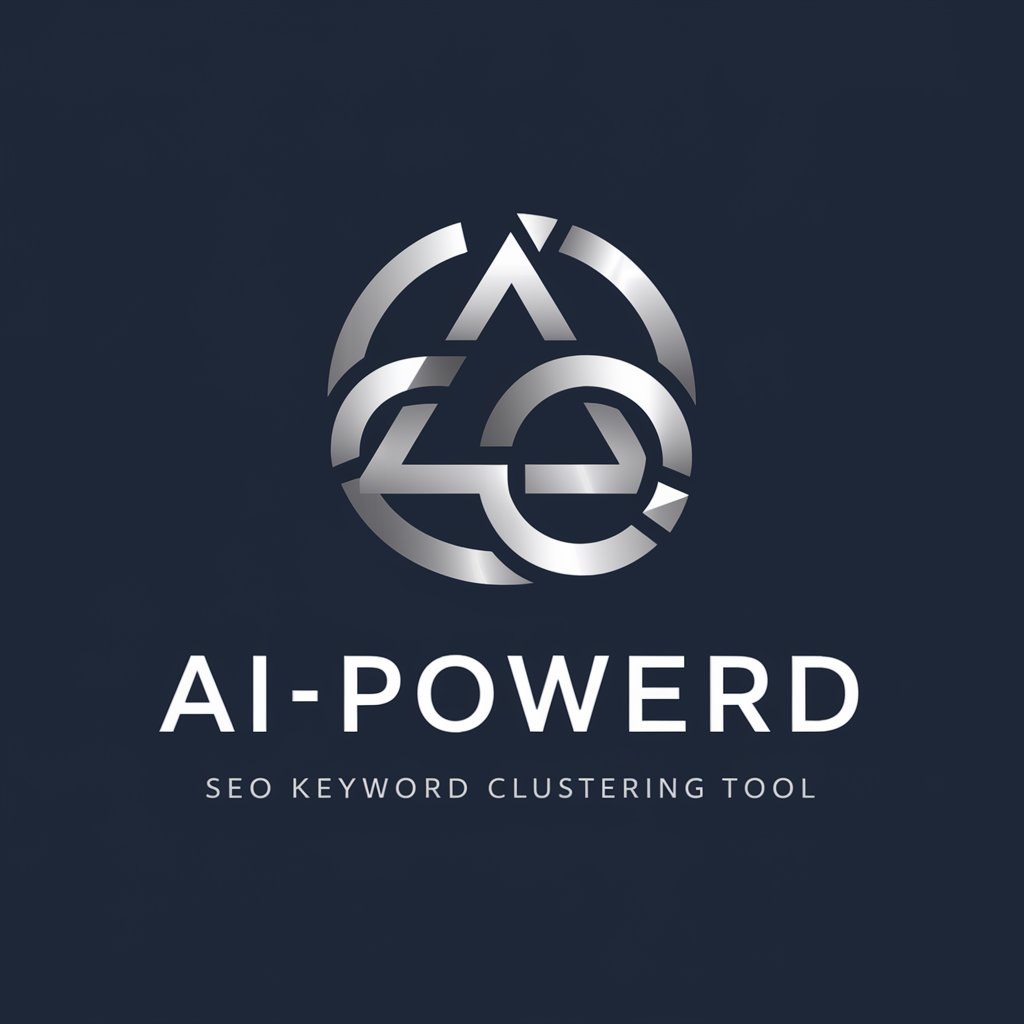
Welcome! Let's optimize your SEO strategy with smart keyword clustering.
Optimize SEO with AI-driven Keyword Clustering
Generate a list of related keywords for...
Organize these keywords into distinct clusters based on search intent...
Identify and group keywords to avoid cannibalization...
Analyze these keywords to create an efficient SEO strategy...
Get Embed Code
Introduction to Cluster Tool
Cluster Tool is designed to automate the process of keyword clustering, a crucial aspect of search engine optimization (SEO) and content strategy. By analyzing the similarity of the top 10 search engine results for a set of keywords, it groups them into clusters. This method ensures that each cluster represents a unique search intent or topic, preventing keyword cannibalization and enhancing content organization across a website. For instance, if a website has keywords related to 'SEO tools,' 'SEO software,' and 'best SEO platforms,' Cluster Tool would analyze search engine results for these keywords and likely cluster them together, recognizing their similar search intent. This allows content creators to target multiple related keywords within a single, well-focused page or set of pages, optimizing for search engines and user experience alike. Powered by ChatGPT-4o。

Main Functions of Cluster Tool
Keyword Clustering
Example
For a digital marketing website, keywords like 'email marketing software,' 'best email campaign tools,' and 'email automation platforms' are grouped into one cluster. This indicates a shared interest or intent among searchers, suggesting a single page could effectively address these queries.
Scenario
When planning a content strategy, this function helps in identifying which keywords should be targeted together, allowing for the creation of comprehensive pages that cater to specific user intents.
Avoiding Keyword Cannibalization
Example
Prevents multiple pages from targeting 'best running shoes' and 'top running sneakers' simultaneously, by indicating these should be targeted within a single content piece.
Scenario
This is crucial for websites with extensive content libraries, ensuring they don't dilute their own SEO efforts by competing against themselves for the same keywords.
SEO Efficiency and Organization
Example
Helps in organizing a large-scale content plan by clearly defining which keywords will be covered on each page, streamlining the content creation process.
Scenario
Useful for SEO managers and content strategists in planning the layout of a new website or restructuring an existing site to improve its search engine visibility.
Ideal Users of Cluster Tool Services
SEO Professionals
SEO experts who are tasked with optimizing a website's content for search engines. They benefit from using Cluster Tool by ensuring that their content strategy avoids keyword cannibalization, is well-organized, and targets multiple related keywords effectively.
Content Strategists
Individuals responsible for planning, developing, and managing content. Cluster Tool aids them in understanding how to group content topics and themes, ensuring each piece of content serves a distinct purpose and targets a specific audience segment.
Digital Marketers
Professionals focused on online marketing strategies who can use Cluster Tool to refine their keyword targeting for PPC campaigns, ensuring ads are aligned with user search intent and improving the efficiency of their ad spend.
Website Owners and Bloggers
Owners of websites and blogs looking to improve their site's SEO performance. Cluster Tool helps them identify how to structure their content to attract more organic traffic by targeting keyword clusters with high relevance and intent.

How to Use Cluster Tool
1. Begin Your Journey
Initiate your free trial at yeschat.ai without the need for login credentials, including bypassing the requirement for ChatGPT Plus.
2. Input Keywords
Enter a list of keywords relevant to your niche or content strategy. Ensure they are comprehensive to cover various aspects of your topic.
3. Analyze and Cluster
Allow the tool to analyze the search engine results for your keywords and cluster them based on similarity in search intent and SERP results.
4. Review Clusters
Examine the generated keyword clusters to understand how your content can be organized to target these groups effectively.
5. Apply Insights
Use the insights from the clusters to guide your content creation, ensuring each piece targets a specific cluster to avoid keyword cannibalization.
Try other advanced and practical GPTs
Client Evaluation Tool
Empowering Legal Decisions with AI

Unofficial Chuo Chatbot
Explore Chuo Ward with AI-powered insights

Dent GPT
Revolutionizing Dental Communication with AI

Ahrefs List Post Generator
AI-Powered SEO List Post Creation

Presentation Coach GPT
Elevate Your Presentations with AI
Best Telescopes
Expert insights into the cosmos at your fingertips

Alone
Exploring Solitude, Empowering Self-Reflection

FM's Report Card Comment Generator
Streamline report card comments with AI

Dream Analyzer
Unveil your subconscious, dream by dream.

Dream Interpretation
Unlock your dreams with AI-powered insights

JobsGPT
AI-powered Founder Matchmaking

文案专家-生活类
Crafting Engaging Content with AI Precision

Cluster Tool FAQs
What is keyword clustering?
Keyword clustering is the process of grouping keywords together that share similar search engine results, indicating comparable search intent. This helps in organizing content strategy to target specific topics effectively.
How does Cluster Tool improve SEO?
By grouping keywords with similar search intents, Cluster Tool helps avoid content cannibalization, ensures targeted content creation, and improves the website's search engine ranking for multiple related keywords.
Can I use Cluster Tool for any niche?
Yes, Cluster Tool is versatile and can be used across various niches. It's crucial to input keywords relevant to your specific niche to generate meaningful clusters.
Is there a limit to the number of keywords I can input?
While there's no strict limit, it's advisable to start with a comprehensive yet manageable list of keywords to ensure the clustering is meaningful and manageable.
How do I apply the insights from keyword clusters?
Use the clusters to guide your content creation strategy by focusing on one cluster per content piece. This approach ensures that each page or article is uniquely targeted, reducing competition among your own pages.
